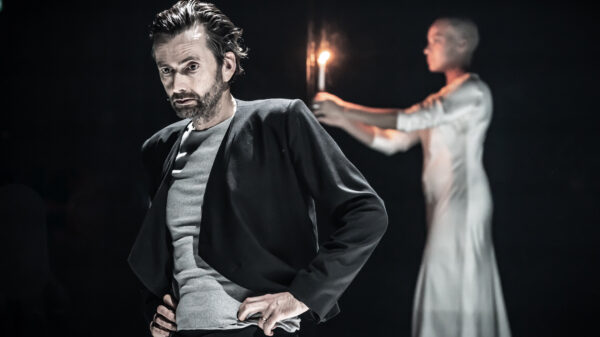Staff Writer Helen Berk reflects on the masterful storytelling qualities of ‘Small Things Like These’ and highlights the movie’s relevance to issues of reproduction rights both historically and today.
‘Small Things Like These‘ is a hauntingly introspective film that lingers, capturing the chilly beauty and moral complexity of small-town Ireland. Tim Mielants’s direction brings Claire Keegan’s novel to life in a way that feels tactile – each scene bathed in the dreariness of a Wexford winter with glittering Christmas lights casting a soft, distant glow against the grey. The coal merchant and feather, Bill Furlong is embodied by Cillian Murphy with an introspective intensity that holds the audience close, almost daring us to stay within the uncomfortable silence that surrounds his quiet revelations.
Bill is a man defined as much by what he doesn’t say as by what he eventually does. His coal deliveries to the convent laundry – grim institutions that held unwed mothers under strict and often abusive control – reveal a society willing to turn away from truths that stain its image of itself. The convent is a fortress of secrets, headed by the formidable Sister Mary (played by a chillingly composed Emily Watson). She acts almost as a mafia donna, with half-hidden threats and money bribes that ultimately are what holds the convent together. She guards these truths with a gentle but iron resolve.
Mielants cinematography is a string of grey lines, often shadowing Murphy’s face or capturing his back as he moves through Wexford’s narrow lanes, creating the eerie sense of isolation that seems to have followed Furlong since his youth. Bill’s memories flash back to us in a warm, golden light, a direct contrast to the frosty air that floats around him in the present. The sound design heightens his isolation: in key moments, the sound drops away, leaving us with only Bill’s shallow breaths, each one thick with unspoken fears and unvoiced grievances.
“What If They Were Our Girls?”
There’s a pivotal scene where Bill dares to voice what he’s been holding back. Late at night, after his five daughters are asleep, he sits on the edge of his bed, confiding in his wife, Eileen (Eileen Walsh), about what he saw in the convent. “What if they were our girls?” he asks, unable to shake the thought of someone else’s daughter locked in a cold shed. His wife replies, “But they’re not our girls”. While Eileen’s practicality reflects the harsh pragmatism of their town, Bill’s own response reveals a father’s quiet dread – a fear that even in their small Wexford village, danger may be closer than they think. Unable to sleep, Bill often sits up alone, a mug of tea in hand, observing the night. He sees small acts of suffering – a woman chased down the street, a young boy sneaking milk left out for stray cats. These glimpses, tiny acts of noticing, reinforce Bill’s moral resolve.
Women’s Politics
Bill’s choice to confront this darkness shows that while the nuns’ power holds sway over most, it doesn’t touch him in the same way. In his “soft heart”, as the town might call it, he feels an ethical obligation to protect the vulnerable – an instinct to have “no part” in the cycles of shame and punishment perpetuated by the convents. Shame and stigma, as Irish commentator Ciara Kelly notes, had a paralysing effect, especially in the 1980s, making it nearly impossible for women to escape institutions like the laundries without facing lifelong judgment. The history of abortion rights in Ireland isn’t so distant, too, with the proceedure legalised only in 2018 via the referendum to repeal the Eighth Amendment.
Today, this culture of fear and shame may not look the same in Ireland, but similar anxieties persist. As waves of conservatism and anti-abortion laws rippled through the US since the overturning of Roe v. Wade and now amplified by Donald Trump’s re-election in 2024, many women worry that access to reproductive health will once again be limited by powerful, often male-dominated institutions. The film reminds us how fragile progress can be – and how much courage it takes to stand against injustice when others look away.
‘Small Things Like These’ is still in theatres in the UK. Grab a seat and watch this touching film while you can!


















